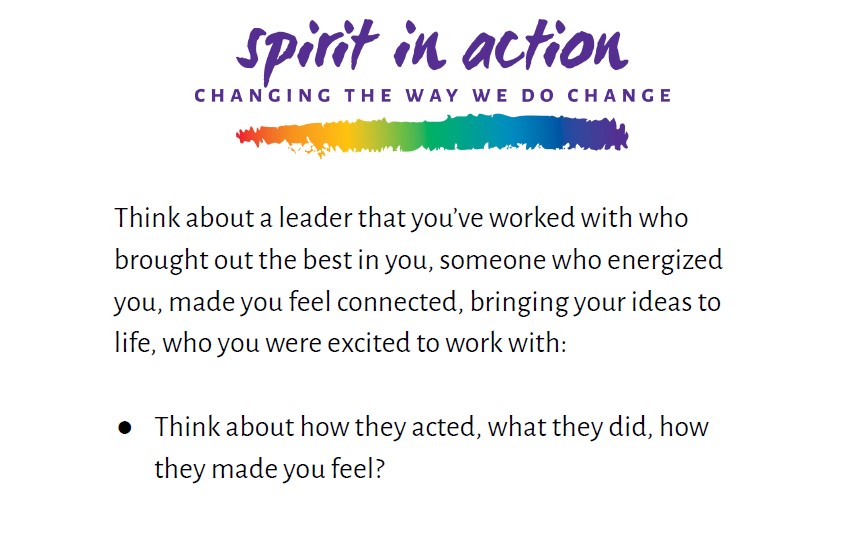
Activists are so busy doing. But they have to take the time to stop, rest and reflect. They have to learn how to say, “No.” This is not a luxury; it is the real work activists must do in order to be effective in a complicated world.
Lessons from the Field
Recently, at one of our TAKE 10 trainings, we tackled the question of leadership: “Are some people born leaders or can anyone learn to become a great leader?”
Most of us at the training thought people can learn to be good leaders with practice: people who listen well, give constructive feedback, learn from mistakes, maintain the organizational vision. For many, good leadership also includes saying, “No.”
The Natural Yes
We are often conditioned by family, our culture or our work choices to respond, “Yes, I will. I will help.” One TAKE 10 participant said that saying no scared her. “I’m worried that if I say it, someone who truly needs something will be left behind.”
The needs in the community are so strong, another organizer told me, that she can’t maintain a schedule. Some people believe this woman is incompetent because she can’t manage her time well. She is late and misses appointments because she gets caught up in other people’s “stuff.” She tries to help or rescue them. She wishes she could clone herself, so everything could get done.
It is a difficult balancing act, to be compassionate – a strength in leadership – and yet say no at the same time. The organizer needs to learn to value her own time and empower other people to help themselves rather than feel she has to rescue them.

The Four D’s
There are places we need to say no and it’s not always to other people. It’s to our work and how we prioritize it. We tend to do the thing that is calling us the loudest rather than what is most strategic and moving us toward our goals. One of the things I use to prioritize and balance my work, especially when I am feeling overwhelmed, are these four questions.
By dividing tasks into these four categories, I can figure out what I have time to actually manage in one day.
Sharing Power
We can all be better leaders if we learn to delegate and work with others, not shoulder the duty of leadership on our own. We all want to be part of a group where we can freely share our talents and gifts. We can create power with relationships rather than power over people.
As we learn from others and share our mistakes, successes and best practices, we are individually and collectively stronger. We tell activists, “If you need something, you ask for it.” Working together, we can have what we all need.
You must be logged in to post a comment.